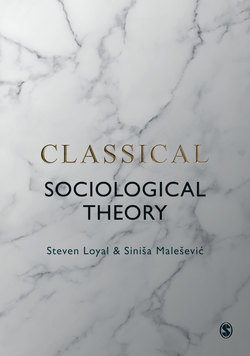Читать книгу Classical Sociological Theory - Sinisa Malesevic - Страница 22
На сайте Литреса книга снята с продажи.
Criticism
ОглавлениеGiven The Republic’s influence and centrality to the Western canon and its revolutionary ideas it is no surprise to know that it has been subjected to a vast amount of criticism. The most infamous critical attack was probably that of Karl Popper, who in The Open Society and its Enemies (2012 [1945]), written shortly after the Second World War and the Nazi atrocities, accuses Plato of attempting to establish a totalitarian system of rule and justify its existence. Such criticism has itself been questioned as overstated, unhistorical and anachronistic for judging a work from the standpoint of modern liberal democratic societies (Voegelin, 2000; Klosko, 2012: 109). The concept of the individual as such, as a unique bounded entity, did not exist in early forms of society. Nevertheless, Popper’s criticism does contain a kernel of truth to the extent that the individual’s worthiness was measured in terms of how they served the city-state as a whole. Plato’s belief in the benevolence of the Guardians and their ability to rule, and produce or determine who is wise and who will become a future Guardian, has also been questioned.
Aristotle also makes a number of criticisms of Plato’s proposals concerning the abolition of private property. These, he argued, were unworkable since:
the greater the number of owners, the less the respect for common property. People are much more careful of their personal possessions than of those owned communally; they exercise care over communal property insofar as they are personally affected. Other reasons apart, the thought that someone else is looking after it tends to make them careless of it. (1261b32)
Aristotle also questioned Plato’s Theory of Forms, which assumed the existence of a hypothetical realm of Forms that existed independently of the real world. Reversing Plato’s argument, Aristotle argued, rather than the general explaining the particular, it is the particular that gives us access to what is universal. The reality of things can be seen in the world around us, and is inherent in everyday objects, and it is from our experience of these particular things that we derive our universal concepts. Aristotle therefore criticises Plato for ignoring the role of experience in assessing knowledge and for being too preoccupied with rationalism and reasoning based on mathematics and geometry.
